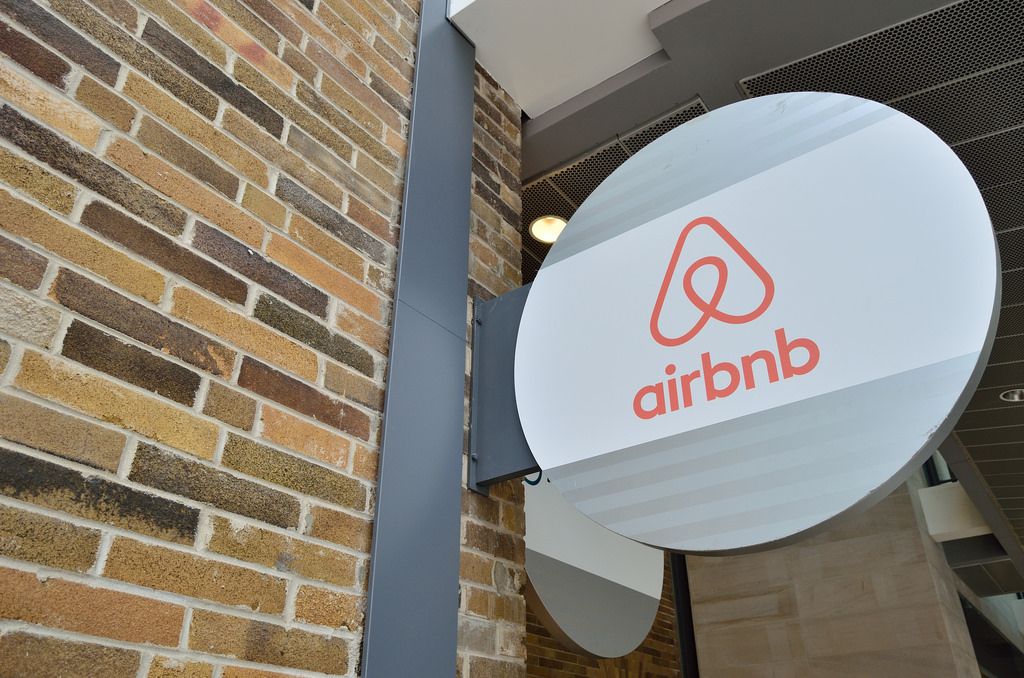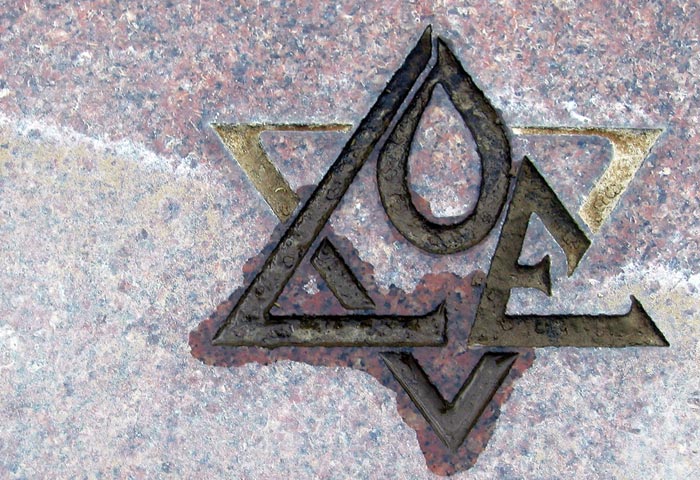 Photo from Flickr.
Photo from Flickr. On Nov. 19, Airbnb issued a press release announcing it was “removing listings” in “Israeli settlements in the Occupied West Bank.” The announcement was met with outrage by many Israelis and Jews around the world. The company’s decision came after a long coordinated and well-financed campaign led by multiple groups (including the misleadingly named Jewish Voice for Peace, Code Pink and others), many of which reject peaceful solutions altogether for the Israeli-Palestinian conflict.
That being said, the most prominent group that led the campaign was Human Rights Watch (HRW), an issue for which HRW lobbied for at least two years. As an Israeli citizen, I am critical of the settlements myself, but I find this campaign and the decision of Airbnb, an online accommodation and vacation company, troubling.
But as a queer person, I find it hurtful and immoral. NGO Monitor highlighted that HRW, a nongovernmental organization, notes Airbnb’s policy regarding discrimination, which allows individuals to “make accommodation distinctions based on, for example, marital status, national origin, gender, or sexual orientation” when this is in adherence to local laws (for places outside of the United States and European Union), and even states, “Should it prove impossible for hosts of a certain area to list properties on a nondiscriminatory basis … Airbnb should disallow listings in that area.”
Although I started to read HRW’s report about Airbnb because I am an Israeli, I quickly realized that Airbnb’s policy is not only discriminatory toward Jewish Israelis, but also toward the LGBTQ community. As a queer person, I was disturbed and furious about HRW’s agenda and the organization’s complete disregard to the real discrimination that is at play. HRW didn’t pressure Airbnb about the 72 countries where being LGBTQ is illegal or the eight countries (seven of which have listings on Airbnb, and Iran, where Airbnb is looking to expand), where being LGBTQ can result in the death penalty and where transgender individuals are oppressed in the most horrific ways. It only pressured Airbnb about Israel, and wrongly so.
Outside of the settlements that were subjected to Airbnb’s new policy, within Palestinian society, families tend to see homosexuality, cross-dressing and transgender behavior as immoral acts against God, deserving of condemnation. A Pew study published in 2013 revealed the extremely homophobic attitude that prevails in Palestinian society, where only 1 percent of Palestinian respondents believed that homosexuality is morally “acceptable” behavior (countries with similar results included Egypt, Pakistan, Ghana, Nigeria and Uganda). Some LGBTQ Palestinians have relocated to Israel, often fleeing harsh intolerance that includes being physically abused, disowned and even murdered. In Gaza, gay men have been thrown off of rooftops and dragged through the streets tied to motorcycles.
However, the Palestinian territories are not the worst places for LGBTQ people. There are far worse countries where gender identification and sexuality often come at a heavy price, countries where Airbnb’s policy actively protects LGBTQ-phobia. In a region where gender segregation is widespread and dress codes are mostly enforced by law, where much of the social structure is based on the distinction between men and women, anything that challenges the status quo is tackled violently. Airbnb’s policy is that LGBTQ-phobic hosts are allowed to discriminate against users in this region.
Culturally, there is no tolerance for transgender people in the Middle East. The most horrific government in the Middle East for LGBTQ people is in Iran, where Airbnb is looking to provide accommodations listings. The Iranian government’s wel-coming of transgender people contrasts dramatically with its criminalization and severe punishment (often the death sentence), of homosexual activity. In Iran, gay men are encouraged to undergo gender reassignment, as the alternative is punishment and ultimately death.
As of 2008, Iran carried out more forced gender reassignment operations than any other nation in the world. This is while same-sex sexual activity is legally banned, in accordance with the Shiite version of Islamic law. Homosexuality is punishable by death in the Islamic Republic. As Iran’s President Mahmoud Ahmadinejad said in 2007, when asked about Iranian homosexuals, “We don’t have this phenomenon in Iran.”
HRW also disingenuously discusses Egypt, where local laws could be interpreted to exclude same-sex and unmarried couples, but isn’t “aware of cases in which Airbnb hosts there faced official sanctions for renting properties to unmarried or same-sex couples.”
But in Egypt, according to Egyptian medical sources, almost all reassignment surgeries are female-to-male. This is due to the fact that trans women fear being associated with the stigma of homosexuality. This is the opposite from the situation in Iran, where the men feel pressured to undergo gender reassignment. However, this discrimination toward the LGBTQ community in Egypt is not mentioned in the HRW report.
My first reading of the HRW report was because of its campaign against Israeli settlements, however, as I read through this report, I realized that this campaign is not just wrong at its core, it is also wrong in the way it provides a cover-up for LGBTQ discrimination and human rights violations. Discrimination isn’t and can’t be selective; you cannot stand up for a specific political cause while ignoring all human rights violations and emboldening other forms of discrimination, specifically against the LGBTQ community.
I call on every LGBTQ person to condemn HRW’s deliberate belittling of our human rights and to boycott Airbnb until it changes its discriminatory policy. There is no moral justification for a company to profit from users that discriminate against LGBTQ people based on their gender or sexuality.
Hen Mazzig is an Israeli writer, public speaker and social justice activist from Tel Aviv. Twitter: @HenMazzig























 More news and opinions than at a Shabbat dinner, right in your inbox.
More news and opinions than at a Shabbat dinner, right in your inbox.